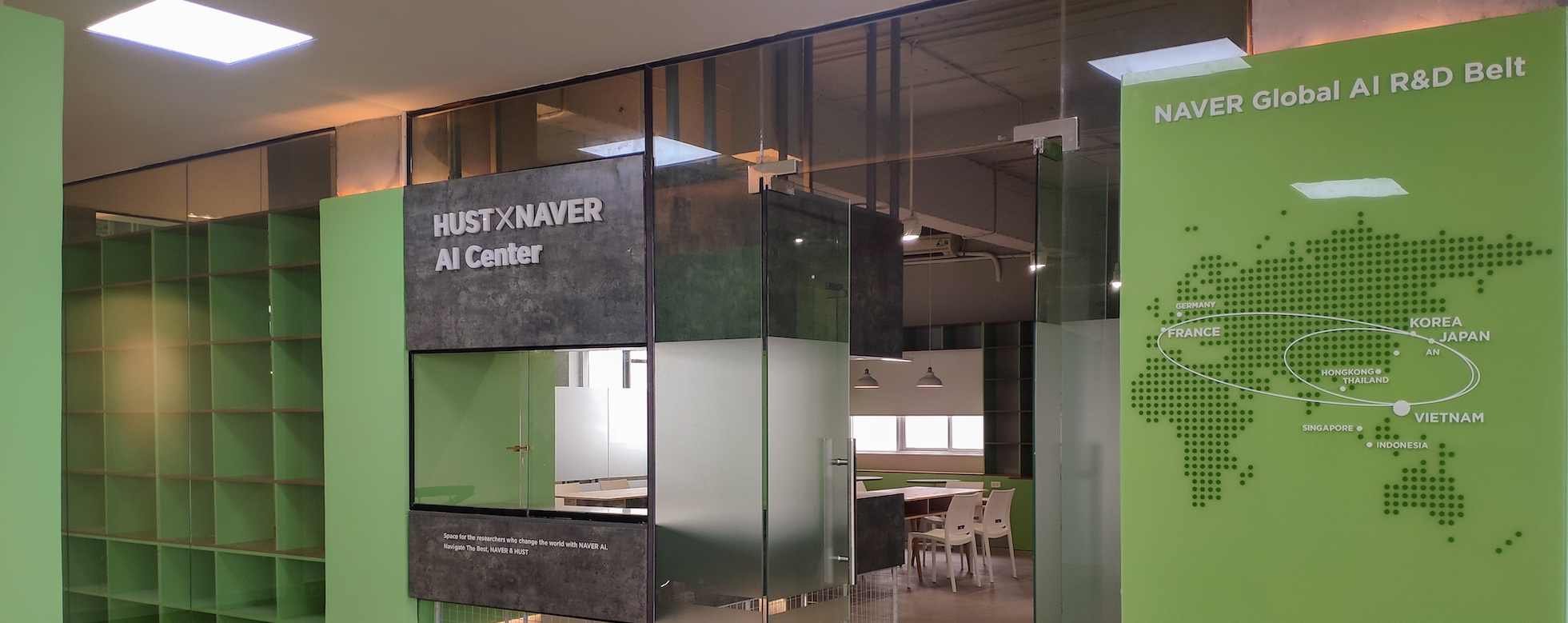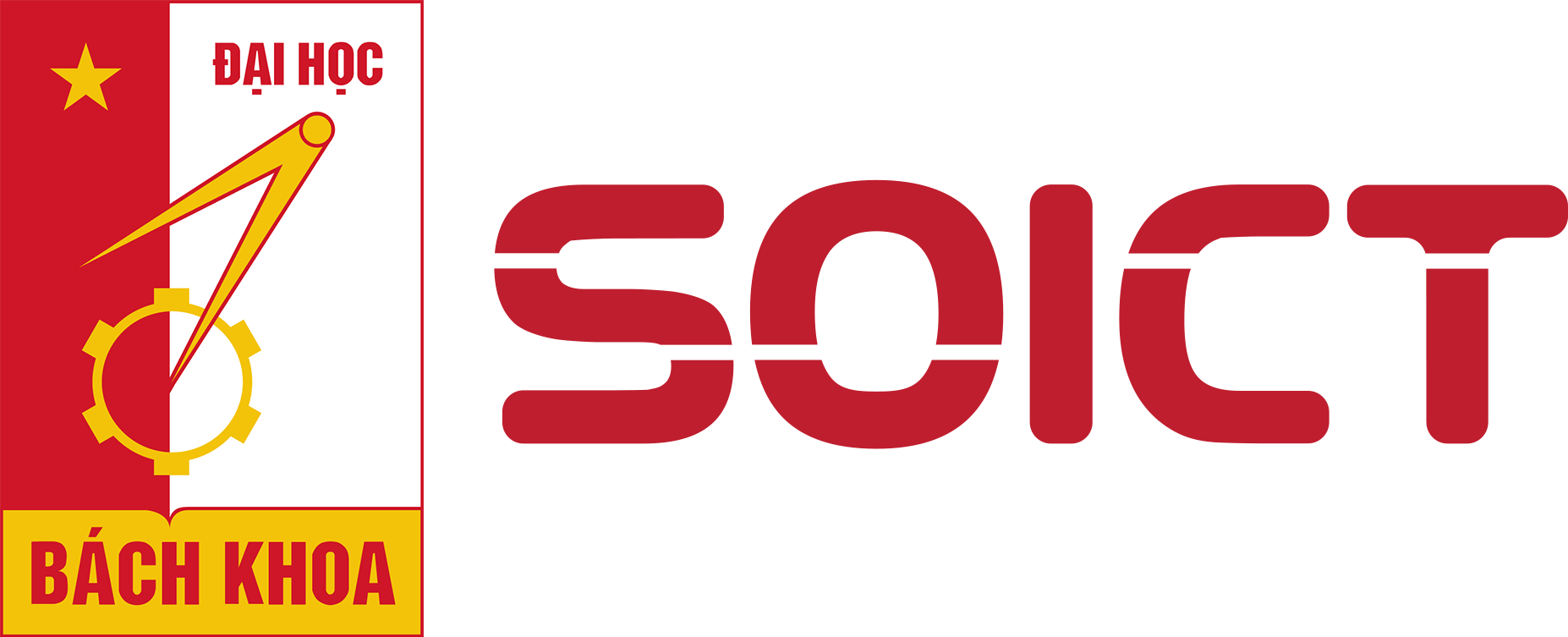
Overview:
Name: The International Research Center for Artificial Intelligence (BK.AI)
Scientific Director: Prof. Ho Tu Bao
Deputy Managing Director: Dr. Dinh Viet Sang
Address: 10th Floor, Building B1, Hanoi University of Science and Technology
Email: bkai@soict.hust.edu.vn
Website: bkai.ai
The International Research Center for Artificial Intelligence (BK.AI) was established with the goal of building and developing a leading research institution in Vietnam, especially in training highly qualified human resources in AI and studying selected important topics about AI. In addition, the center aims to build strong research groups and publish research works of great influence in the region and the world. The center also focuses on technology transfer, promoting the application of AI in practice.
Main functions:
The center has an open operating model, facilitating AI research scientists inside and outside the university, Vietnam, and internationally to conduct research in AI. In the long-term goal, the center is a place to connect research groups on artificial intelligence at Hanoi University of Science and Technology in order to promote their strengths and jointly conduct the goals of research, training, and technology transfer in AI.
The center has the following main functions:
- Participate in training activities that contribute to the creation of high-quality human resources in AI.
- Organize scientific research and technology transfer activities. Strengthen cooperation with businesses, research institutes, associations, other organizations, and individuals to improve research quality, bring research to practical application, and meet social needs.
- Implement scientific-technical service activities. Expand cooperation with research units inside/outside the university, research funding agencies, international partners, application sites (state management agencies, businesses) to build the research topics/projects/programs not only catch up with the development trend of the world but also have high application potential, thereby enhancing the position of domestic and foreign units.
- Act as a bridge for cooperation between research groups in HUST and research groups both in Vietnam and abroad. Organize regular and periodic scientific seminars between research groups to enhance exchange between groups. From there, contribute to the establishment of interdisciplinary research groups.
Main research groups:
The center has eight main research groups: Machine Learning, Natural Language Processing, Computer Vision, Bioinformatics, Intelligent Software Engineering, Optimization, Distributed Computing Systems, and Intelligent Communication Networks.
- Machine learning:
The machine learning research group focuses on problems related to the core technology of machine learning, such as: Studying problems of learning from infinite data streams that helps a computer not only can learn continuously from data but also make good use of human knowledge; Continuous learning algorithms: enable a computer to train continuously from a continuous stream of incoming tasks; Deep generative models are capable of generating real data (images, text, sentences, etc.); Recommendation systems (recommender systems) are capable of modeling user responses, hidden higher-order relationships between users and products, from which to make accurate recommendations.
- Natural language processing:
Research topics of the natural language processing group include Text Processing, Text Summarization, Question and Answer System, Dialog System, Text-To-Speech, Opinion analysis, Machine translation, Event extraction, Copy detection, Text-To-Speech.
- Computer vision:
The computer vision group studied the following problems: OCR and information extraction, Diseases detection and localization in healthcare applications, Face recognition, Object classification and recognition, Object detection and localization.
- Optimization:
The optimization research group focuses on using naturally oriented algorithms, graph theory, computational geometry, etc., to solve optimization problems in many different fields. Some typical research topics of the optimization research team can be mentioned, such as: Optimizing the deployment of various types of wireless networks (Network placement optimization), Optimizing the charging schedule in wireless charging networks, Optimization in the transport problems, Multi-objectives Optimization.
- Intelligent Communication Networks:
The smart network research group focuses on researching models, smart communication protocols, new generation networks (e.g., 5G, 6G, IoT networks, V2X networks), etc. The group also focuses on research applying AI in managing and coordinating activities to improve the network’s performance. Some specific research directions can be mentioned: Traffic engineering, Intelligent routing, Next-generation networks, Network optimization, Software Defined Networks.
- Bioinformatics:
Bioinformatics is an interdisciplinary field that aims to apply information technology to solve important problems of biology, especially molecular biology. Given the enormous complexity of DNA, such as the number of about 3 billion nucleotides in the DNA of human cells, understanding the interactions and properties of nucleotide fragments will require the assistance of computational algorithms capable of running on powerful computer systems. The main research directions of the Biomedical Informatics group include protein structure prediction and gene expression prediction.
- Distributed computing systems:
The research group on distributed systems focuses on three main directions as follows:
- Decentralized storage technology: Research, develop and build decentralized applications; building a support system for creating landing pages based on IPFS decentralized storage technology.
- Blockchain technology application for AI services: Research and development of Red Book Management System, research and development of Data Retrieval and Retrieval systems for education, agriculture, real estate management production, transportation, …
- KYC Identification System and Electronic Contract.
- Intelligent Software Engineering:
The intelligent software engineering group focuses on two main directions: Software engineering for AI and Software Automation. Software engineering for AI studies methods to analyze and find errors in AI systems automatically; approaches (analysis, testing, debugging, and verification) to ensure the reliability and security of the AI system. Software Automation studies to automate processes in software development: automatically generate test scripts, automate tests, automatically find and fix errors, …
